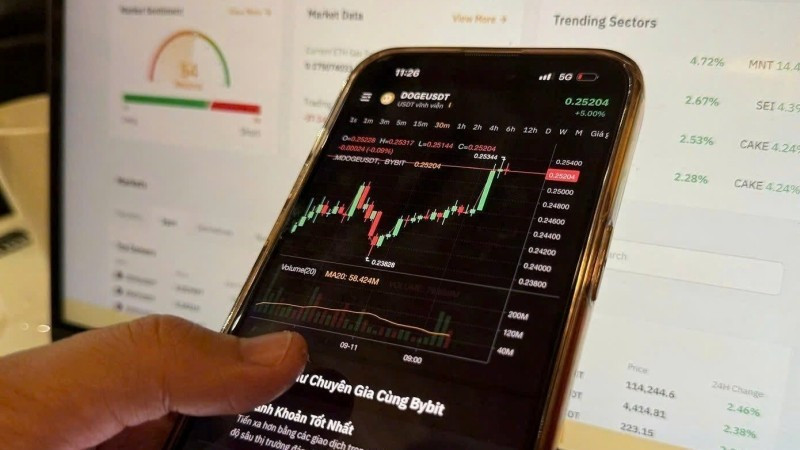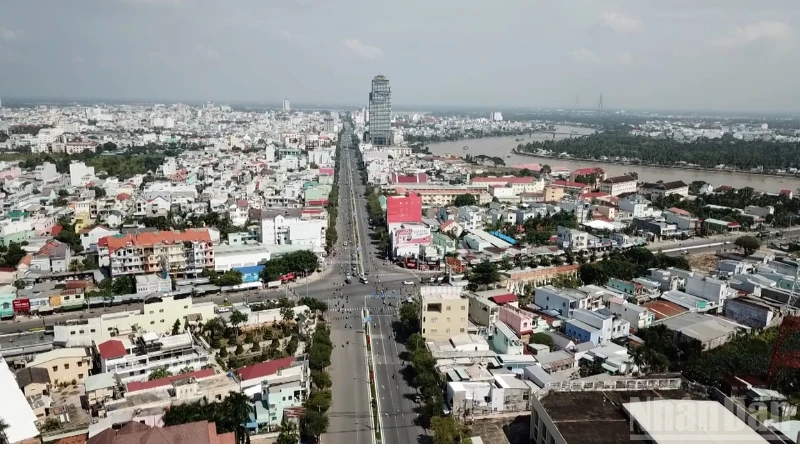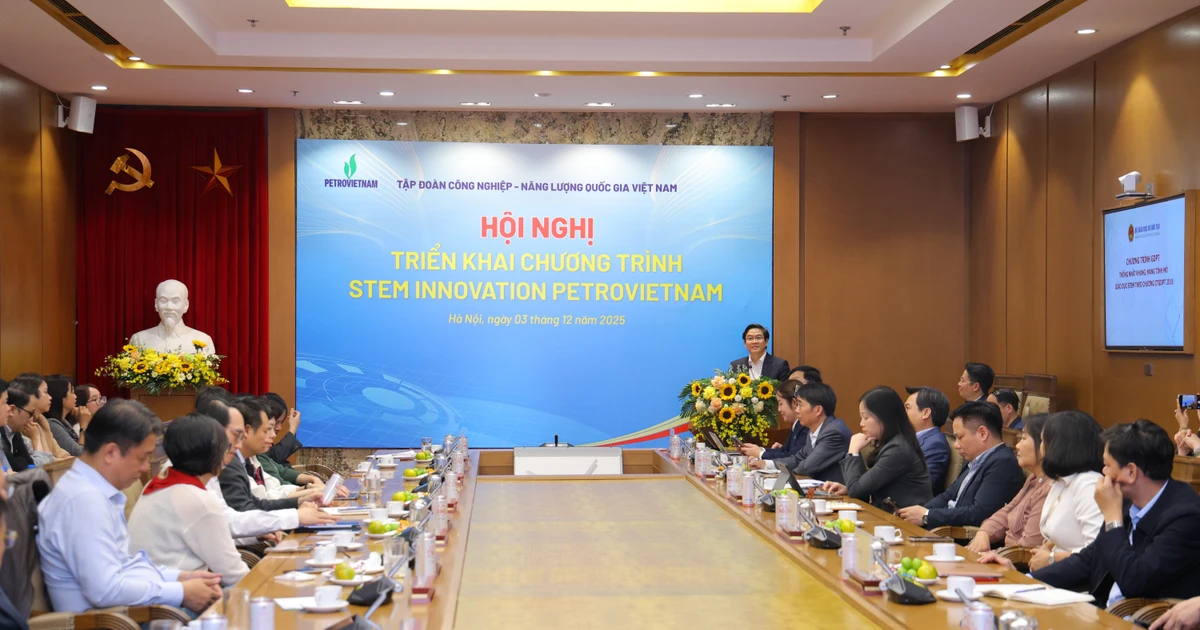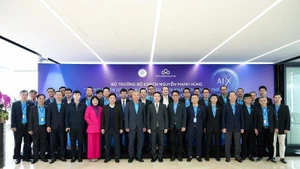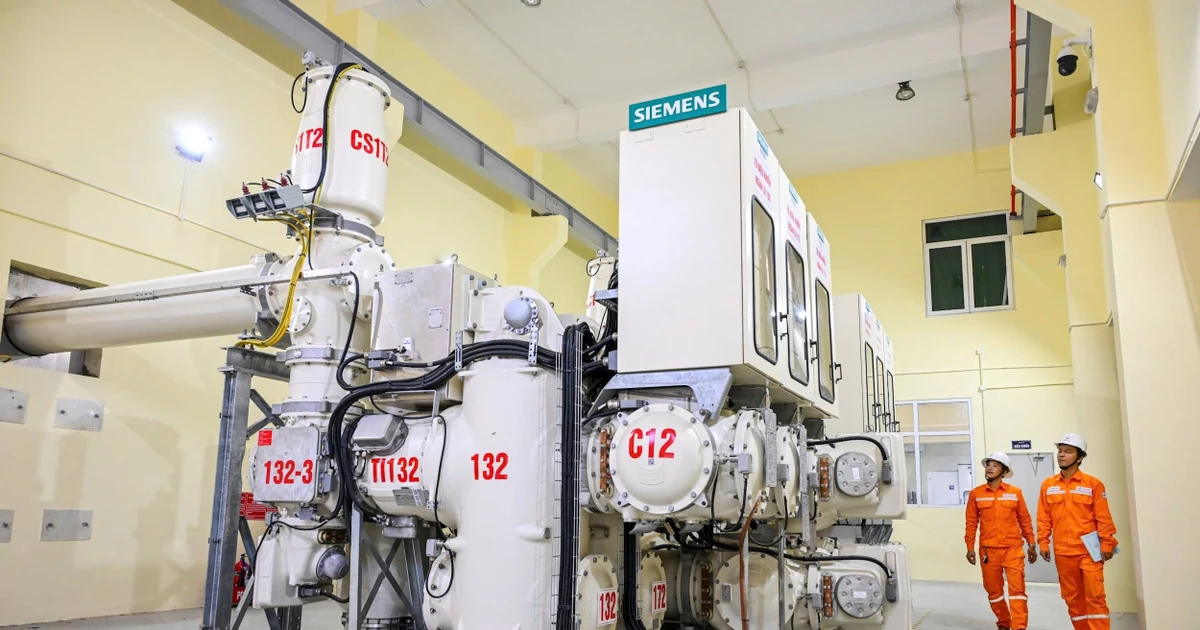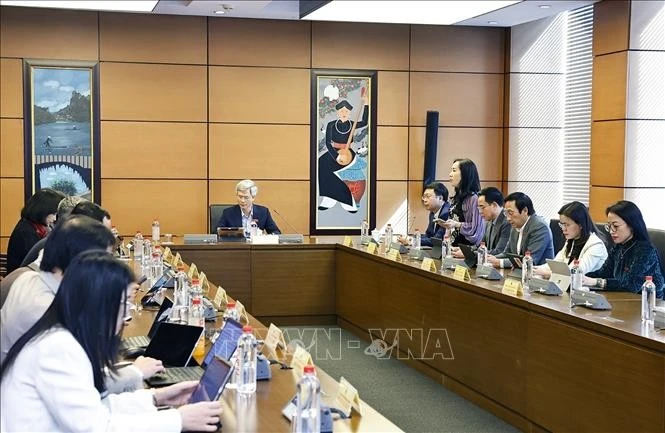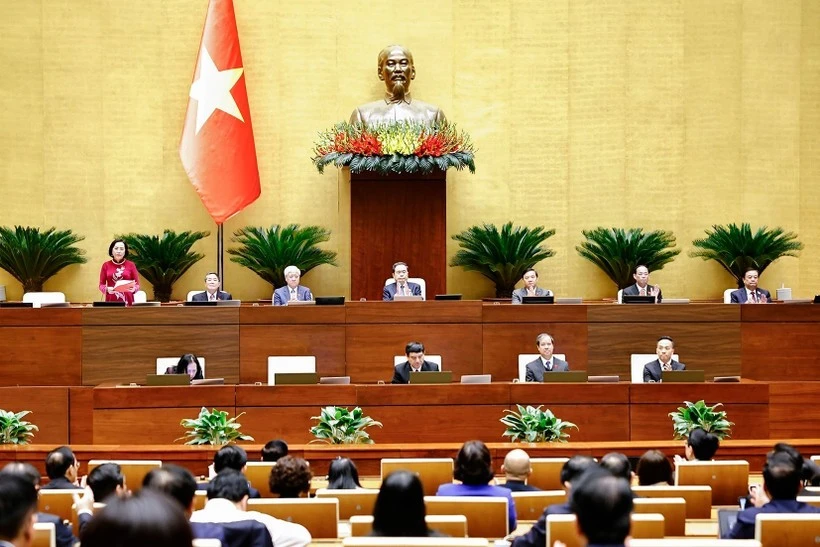The government’s Resolution No. 05/2025/NQ-CP (dated September 9, 2025) on piloting the crypto asset market in Viet Nam is an important milestone, creating a legal basis for putting crypto assets under management, ensuring the safety of the financial and monetary system; at the same time, opening a channel to mobilise new resources to serve the country's development goals.
Strict legal conditions
With the principle of implementing the crypto asset market cautiously, under control, with a roadmap suitable to practice, ensuring safety, transparency, efficiency, and protecting the legitimate rights and interests of market participants, Resolution No. 05/2025/NQ-CP sets out very strict legal conditions.
Specifically, enterprises participating in providing services to organise crypto asset trading markets must have a minimum charter capital of 10,000 billion VND; at least 65% of the charter capital contributed by institutional shareholders; in which at least two large financial institutions (such as commercial banks, securities companies, fund management companies, insurance companies, and enterprises operating in the technology sector) are contributing more than 35% of charter capital.
The resolution also stipulates that organisations and individuals participating in the market must comply with the provisions of law on anti-money laundering, anti-terrorism financing, cybersecurity, and safety in the crypto asset market.
Organisations providing crypto asset services must have an information technology system meeting safety standards level 4 before being put into operation and exploitation, and they must be assessed by the Ministry of Public Security. Specifically, crypto assets can only be offered, issued, and traded between foreign investors through service providers licensed by the Ministry of Finance.
The resolution also clearly states that foreign and domestic investors are allowed to open accounts at crypto asset service providers licensed by the Ministry of Finance. Six months after the first trading floor is licensed, domestic investors trading crypto assets without going through a service provider licensed by the Ministry of Finance will be subject to administrative sanctions or criminal prosecution depending on the nature and severity of the violation.
Thus, the mandatory transfer of crypto assets to domestic exchanges is considered a step from the “grey zone” to the official market, helping investors avoid risks and to be protected their legitimate rights and interests.
Le Bao Nguyen, Deputy General Director of SSI Digital Technology Joint Stock Company (SSI Digital), commented that the government's issuance of the resolution on piloting the crypto asset market with strict legal conditions is a cautious but necessary approach, ensuring that only organisations with real capacity are qualified to participate in the market, in order to build a transparent supervised market that meets international integration requirements.
During the pilot period, the Ministry of Finance will coordinate with the State Bank of Viet Nam (SBV) and the Ministry of Public Security to select a maximum of five organisations to provide crypto asset services.
Leverage for new economic development
Phan Duc Trung, Chairman of the Viet Nam Blockchain and Digital Assets Association (VBA), said that the government's issuance of Resolution No. 05/NQ-CP at the present time is an advantage because the global crypto asset market is in a strong maturity stage. However, compared to the stock market, this market is still in the early stages of development, bringing many opportunities but also posing many challenges in the operation process.
Crypto assets are divided into two types: those tied to real assets (tokenised) and those not tied to real assets. According to Boston Consulting's forecast, digital assets tied to real assets could reach a scale of about 19,000 billion USD by 2033, equivalent to about 10% of global GDP. Data from many international research organisations shows that Viet Nam currently has more than 17 million people owning crypto assets with an annual cash flow of more than 100 billion USD, about four to five times the total amount of foreign direct investment in Viet Nam.
In that context, requiring domestic investors owning crypto assets to transfer to exchange through domestic trading floors licensed by the Ministry of Finance also aims to create a legally-recognised playground for professional investors.
As a member of the Drafting Committee for Resolution No. 05/NQ-CP, Phan Duc Trung said that Viet Nam's orientation in promoting the issuance of crypto assets is to attract capital flow from abroad, through regulations that only foreigners can buy crypto assets. Technically, this regulation will create a separation and foreign exchange market protection when there is no connection with the domestic market.
However, it may reduce the attractiveness of Viet Nam's crypto-asset trading market during the pilot phase. In addition, the lack of human resources for operation is also a difficult problem for the Vietnamese crypto asset market.
According to experts, the five-year pilot phase will lay the foundation for the sustainable development of Viet Nam's digital asset market. While management agencies continue to build operation standards, organisations, and businesses need to be ready to meet four basic factors to participate in the market, including infrastructure, financial resources, human resources, and compliance systems.
For new investors, although they cannot participate immediately, they need to carefully prepare in terms of knowledge, establish financial discipline, and master the operation mechanism to participate in capital calling channels through legal exchanges.
